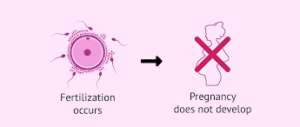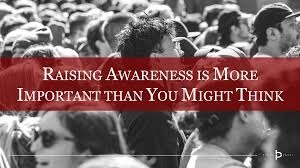Infertility and Society: Understanding Stigma & Promoting Awareness

Infertility is a deeply personal and often painful experience that affects millions of individuals and couples worldwide. Yet, despite its prevalence, infertility is frequently met with societal stigma and discrimination, particularly toward women. This article explores the societal perceptions surrounding infertility, the unique challenges faced by women, and the urgent need for greater awareness and advocacy.
DEFINING INFERTILITY

Infertility is commonly defined as the inability to conceive after one year of unprotected intercourse for women under the age of 35, and after six months for women aged 35 and older. According to the World Health Organization (WHO), around 15% of couples globally experience infertility, marking it as a significant public health issue (WHO, 2021). This statistic translates to millions of individuals facing the emotional, physical, and financial burdens associated with infertility.
The Medical and Emotional Landscape of infertility
Infertility can stem from various medical conditions affecting either partner. Common causes include hormonal imbalances, age-related factors, structural abnormalities, and underlying health issues such as polycystic ovary syndrome (PCOS) or endometriosis. Each diagnosis carries its own set of challenges and treatment options, which may include medications, assisted reproductive technologies (ART), or surgical interventions.
The emotional toll of infertility can be profound. Many women experience feelings of inadequacy, sadness, anger, and anxiety. The journey often involves numerous medical appointments, invasive procedures, and the pressure of making life-altering decisions, all of which can contribute to a sense of isolation and despair.
Societal Stigma surrounding infertility: A Complex Web

The stigma surrounding infertility is multi-faceted, deeply rooted in cultural beliefs and societal expectations. Women, in particular, often bear the brunt of this stigma for several reasons:
1. Cultural Expectations of Motherhood
In many cultures, motherhood is seen as a fundamental aspect of a woman’s identity. Societal norms frequently equate a woman’s worth with her ability to conceive and bear children. This pressure can manifest in comments from family and friends, leading women to feel inadequate or ashamed of their infertility. In societies where family lineage and childbearing are prioritized, women may feel as though they have failed not just themselves but also their families.
2. Misunderstanding and Misinformation
Infertility is often misunderstood by the general public. A prevalent misconception is that infertility is solely a female issue, leading to victim-blaming. This erroneous belief can create a lack of support for women, who may already be grappling with feelings of guilt and inadequacy. Furthermore, many people lack an understanding of the medical complexities surrounding infertility, leading to harmful assumptions and stereotypes.
3. Isolation and Loneliness
The stigma attached to infertility can create a significant sense of isolation. Women may feel unable to discuss their struggles openly, fearing judgment or unsolicited advice. This silence can be isolating, as those facing infertility often feel that their friends and family cannot relate to their experiences. The result is a profound loneliness that can exacerbate the emotional challenges of infertility.
4. Intersectionality and Compounding Stigma
For women from marginalized communities, the stigma surrounding infertility can be compounded by additional layers of discrimination. Racial, economic, and social factors can intersect, making the experience of infertility even more challenging. For example, women of color may face both racial discrimination and the stigma of infertility, leading to even greater isolation and barriers to access quality healthcare.
The Importance of Raising Awareness of infertility

Addressing the stigma surrounding infertility is crucial for several reasons, and raising awareness is a fundamental step in this process.
Education as a Tool for Change
One of the most effective ways to combat stigma is through education. Public awareness campaigns can help dispel myths about infertility, educating people about its prevalence, causes, and the emotional toll it takes on individuals. By increasing understanding, society can cultivate empathy and support for those experiencing infertility.
For instance, educational programs in schools and community centers can inform people about reproductive health, emphasizing that infertility is a medical condition and not a personal failing. This proactive approach can help normalize discussions around infertility and foster a more supportive environment.
Creating Support Networks
Awareness initiatives can also facilitate the creation of support networks for individuals and couples struggling with infertility. Support groups provide safe spaces for sharing experiences, coping strategies, and emotional support. Such networks can be invaluable, allowing individuals to connect with others who understand their struggles, thereby reducing feelings of isolation.
Organizations dedicated to infertility awareness, such as RESOLVE: The National Infertility Association, play a pivotal role in connecting individuals to resources and support. These organizations often host events, provide educational materials, and advocate for policy changes to improve access to fertility treatments.
Advocating for Policy Changes
Increased awareness can lead to advocacy for policy changes that support individuals facing infertility. This includes pushing for legislation that mandates insurance coverage for fertility treatments, as many individuals find themselves unable to afford necessary procedures. In many regions, infertility treatments are not covered by health insurance, placing an undue financial burden on couples already facing emotional stress.
Moreover, workplace policies can also be adapted to better support employees undergoing fertility treatments. Flexible work hours, paid leave for medical appointments, and mental health resources can significantly improve the experience of individuals navigating infertility while trying to maintain their careers.
The Role of Media and Public Figures towards infertility

Media representation plays a crucial role in shaping societal attitudes toward infertility. Positive portrayals of individuals and couples navigating infertility can help normalize the conversation and break down barriers of stigma. Documentaries, television shows, and films that address infertility can offer relatable narratives that resonate with many viewers, helping them feel seen and understood.
Public figures who openly discuss their fertility struggles can also contribute to greater visibility and support. Celebrities like Tyra Banks, Chrissy Teigen, and Michael Phelps have used their platforms to share their experiences with infertility, encouraging open dialogue and helping to reduce the stigma associated with it. When influential individuals speak candidly about their challenges, they pave the way for others to do the same.
Social Media as a Catalyst for Change
Social media has emerged as a powerful tool for raising awareness about infertility. Platforms like Instagram and Twitter allow individuals to share their stories and connect with others facing similar challenges. Hashtags such as #InfertilityAwareness and #TTC (trying to conceive) have created virtual communities where people can find support, share information, and advocate for change.
While social media can sometimes perpetuate unrealistic portrayals of fertility, it can also serve as a space for authentic sharing and support. Individuals can find solace in knowing they are not alone in their struggles, fostering a sense of community that can be incredibly healing.
Conclusion.
This is a complex issue that affects many women, often accompanied by stigma and discrimination. The societal pressures to conform to traditional notions of motherhood can lead to feelings of isolation and inadequacy for those struggling to conceive. However, by raising awareness and advocating for a more compassionate understanding of infertility, society can create a supportive environment for those affected.
Reducing stigma is not only beneficial for individuals navigating infertility but also contributes to a broader culture of empathy and understanding. Through education, the establishment of support networks, and policy advocacy, we can work toward a society that recognizes the challenges of infertility and provides the necessary support for individuals on this often-lonely journey.
References
- World Health Organization (WHO). (2021). “Infertility.” Retrieved from WHO website.
- Greil, A. L., McQuillan, J., & Slauson-Blevins, K. (2010). “The Social Context of Infertility.” Social Science & Medicine, 70(8), 1243-1250.
- Domar, A. D., & Rooney, K. (2013). “The Impact of Infertility on Relationships.” American Journal of Obstetrics and Gynecology, 208(3), 207-212.
- RESOLVE: The National Infertility Association. (n.d.). “About Infertility.” Retrieved from RESOLVE website.
Written by Fawzi Rufai, Medically Reviewed by Sesan Kareem